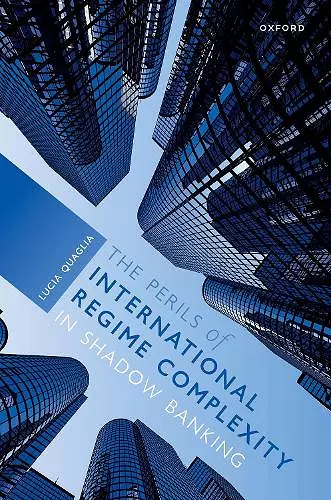The Perils of International Regime Complexity in Shadow Banking
Format:Hardback
Publisher:Oxford University Press
Published:13th Jun '22
Currently unavailable, and unfortunately no date known when it will be back

Despite the role of shadow banking in the building up of the 2008 international financial crisis, the massive size of this sector, its cross-border nature, and the risks it entails for financial stability, the post-crisis regulation of shadow banking has remained rather feeble. Why? The Perils of International Regime Complexity in Shadow Banking identifies a 'game of shadows', which unfolded recursively concerning the definition, monitoring, and regulation of shadow banking internationally. Thus, states, regulators, and private actors tended to cast light away from various parts of the shadow banking system - shadow banking was (re)fined over time, its measurement was narrowed down, lessening the (perceived) need for regulation. The playing out of such a game was facilitated by the international architecture for shadow banking governance, which is a 'regime complex' characterized by the presence of multiple institutions and elemental regimes governing a set of related issues. Indeed, shadow banking is a quintessential case for demonstrating the perils of international regime complexity, which magnifies problems that are endemic in governing global finance - namely, interstate competition, disagreement between technocratic bodies, and the power of the financial industry - while splintering solutions, due to the fragmentation of regulatory authority. Empirically, this book examines various elemental regimes concerning different aspects of shadow banking, namely: international standards for defining, measuring, and monitoring global shadow banking; international standards for shadow banking entities, including money market funds, hedge funds, and investment funds; international standards for shadow banking activities, such as securitization, securities lending, and repos; international standards for bank capital exposures to shadow banking.
Quaglia (political science, Univ. of Bologna, Italy) identifies a connection between the relatively unregulated shadow banking sector and the 2008 financial crisis. She finds that post-crisis attempts to create a well-functioning global regulatory regime have proved insufficient for reducing systemic risk and that current risk conditions may exceed those predating 2008. * Choice *
ISBN: 9780192866523
Dimensions: 240mm x 164mm x 21mm
Weight: 518g
234 pages